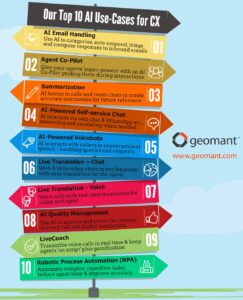Compliance. The word alone is enough to strike fear into the hearts of business leaders, resellers, and technology partners everywhere. Compliance is a necessary thing for a variety of reasons. It’s a way to generate trust with your target audience, open the door to new sales avenues (without restrictions), and protect yourself from severe legal headaches.
Unfortunately, ensuring compliance is inherently challenging. As customer conversations become more complex and regulations evolve, keeping up with the guidelines is exceptionally challenging. Fortunately, the process doesn’t have to be as challenging as it seems. Whether you’re looking for ways to be more proactive about compliance, you’re hoping to strengthen your current initiative, or you want to make sure you are investing in the right areas, the right partner can make all the difference.
Why Compliance is Important for Every Company
When you’re focused on strengthening customer experiences, differentiating your products, and keeping costs low, it’s easy to let compliance fall into the background.
However, the reality is every business needs to understand and dedicate resources to managing compliance. Studies show ethical, cautious companies are more successful than those without vital compliance initiatives.
One of the most significant “benefits” to compliance is avoiding costly penalties from being out of compliance. Those hefty fines can damage your bottom line and reputation. Compliance offers other advantages including:
- Enhanced customer trust: When customers know a company takes compliance seriously, they’re more likely to rely on them to deliver excellent service and experiences.
- Increased revenue: Demonstrating compliance can help to grow sales by reducing the feelings of “risk” a customer may feel during a purchase. You can also expand into new markets without worrying about regulatory mishaps.
- Improved internal processes: Companies with a clear understanding of compliance can implement policies and procedures that boost efficiency and productivity. These practices can also protect crucial data and resources in the business.
How Companies Can Ensure Compliance
There is no one-size-fits-all strategy for becoming compliant. Each industry has its own unique set of rules and regulations. Additionally, plans need to be optimized individually because every business follows different processes and workflows. In most cases, the path to compliance will start with research. Business leaders must define what compliance looks like to them and set up policies for employees to follow.
The biggest challenge for most organizations comes when they’re implementing new technologies and tools for digital transformation. For instance, adding Microsoft Teams to the contact center or UCaaS stack enables better collaboration and productivity, but it also comes with new recording issues to address and understand. Fortunately, the solution to this problem is simple: work with the right partner.
Making Compliance a Core Part of Transformation
The right technology partner will help you integrate new technology and upgrade your business strategies without compromising compliance. For instance, Geomant is a specialist systems integrator capable of providing expert knowledge and services for companies in any environment. We work with businesses to implement external and internal communication strategies to help our clients achieve their process goals (without overlooking compliance).
Our clients benefit from rapid access to innovative technology capable of delivering quick returns on investment. Moreover, they can access the tools they need with increased control and reduced complexity. Contact Geomant today to find out how to build an effective compliance infrastructure while simultaneously addressing key business goals and concerns.











